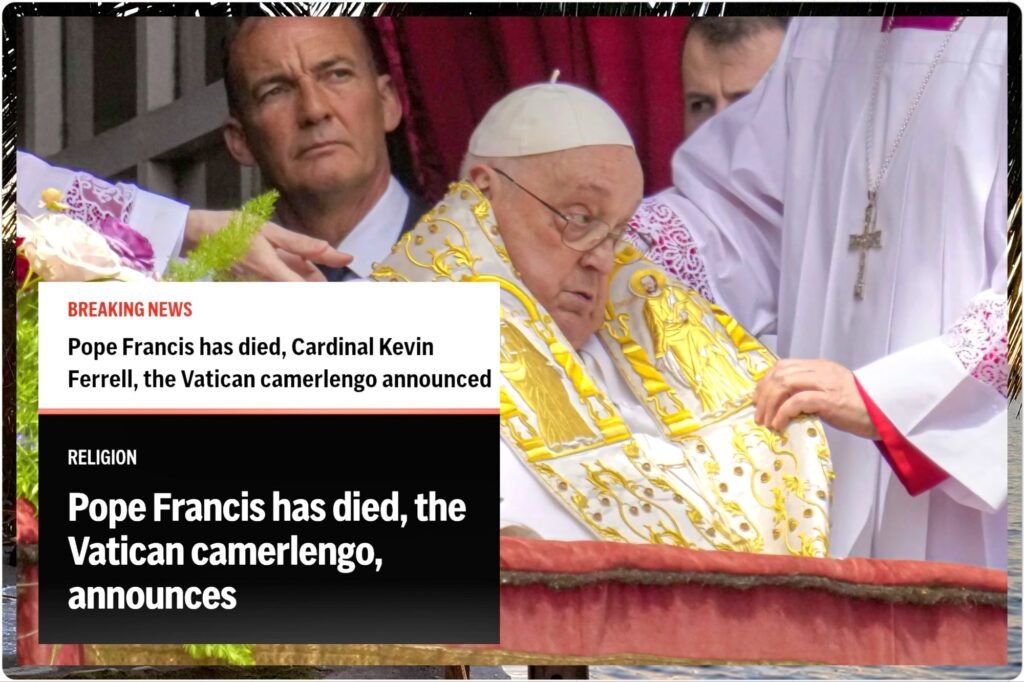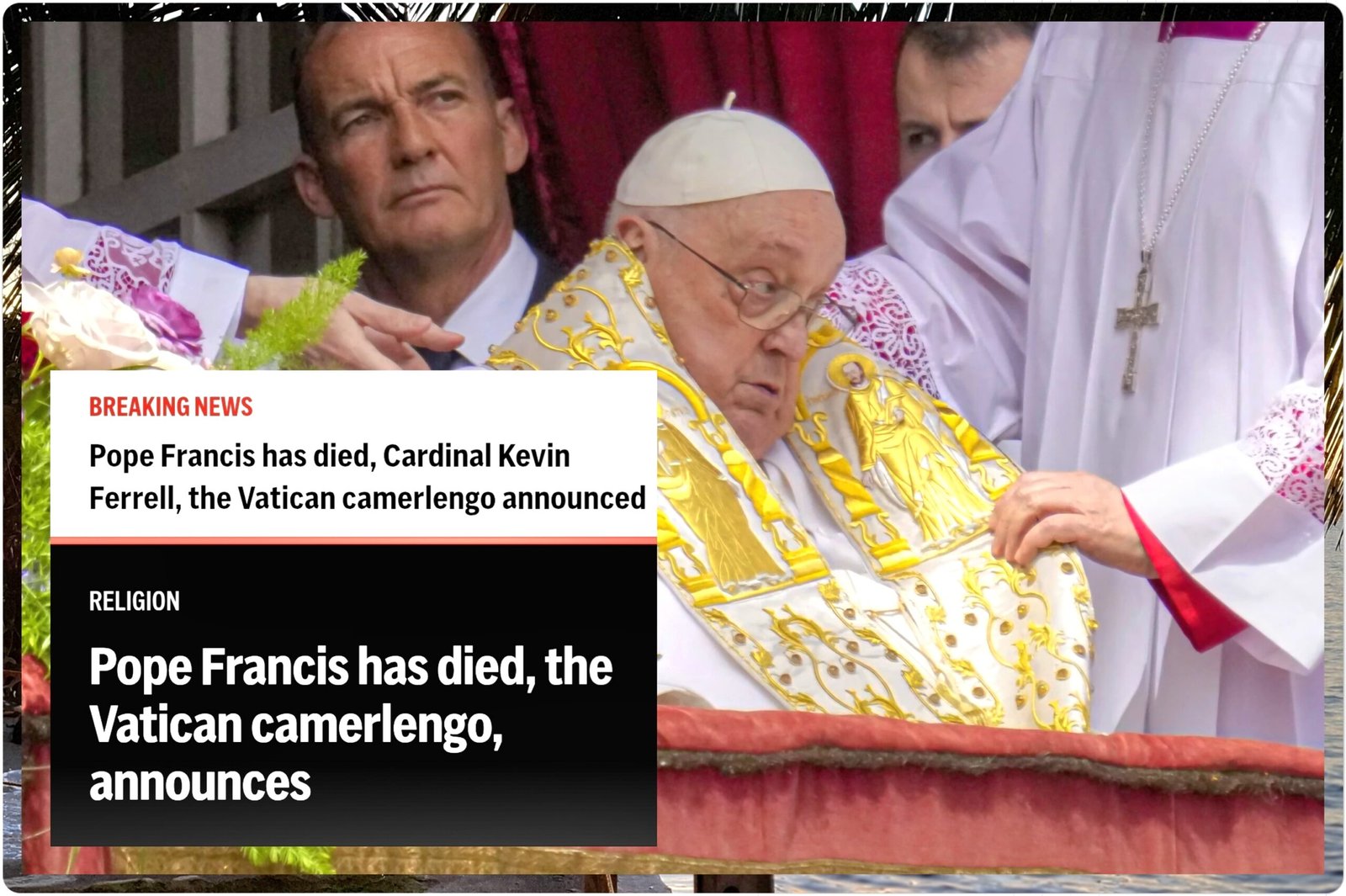Pope Francis Dies at 88, Bringing to a Close a Pivotal 12‑Year Papacy
First Latin‑American pontiff remembered for humility, reform and a tireless call to mercy
VATICAN CITY — Pope Francis, who rewrote expectations of the modern papacy with his disarming simplicity and relentless focus on society’s margins, died Monday, April 21, at 7:35 a.m. in his residence at the Casa Santa Marta. He was 88. Cardinal Kevin Farrell, the Vatican camerlengo, announced the death in a brief, sombre video address broadcast worldwide. “With profound sorrow,” he said, “I must announce that the Bishop of Rome, Francis, returned to the Father this morning.”
The Argentine‑born Jesuit, elected on March 13, 2013, was the first pope from the Americas and the first to take the name of St Francis of Assisi. In the dozen years that followed, he propelled Catholicism onto new moral terrain—denouncing a “throw‑away culture,” championing migrants and the climate, and insisting that the Church become a “field hospital” for the wounded of the world.
Fading health after a long battle with pneumonia
Francis’ final months were shadowed by a severe case of double pneumonia that kept him in Rome’s Gemelli Hospital for 38 days and forced aides to scale back his public appearances. On Easter Sunday—just 24 hours before his death—he surprised crowds by circulating through St Peter’s Square in an open popemobile, greeting the faithful with a quiet wave.
Immediate rites and a simplified funeral
Vatican officials said the body would lie in state “within the next 24 to 48 hours” in St Peter’s Basilica, in accordance with funeral norms revised by Francis himself last year. The pontiff requested a pared‑back liturgy and burial not in the grottoes beneath the basilica but in the Basilica of St Mary Major, where he prayed before every apostolic journey. The College of Cardinals will begin nine days of mourning (the Novemdiales) before entering conclave in late April or early May to choose a successor.
Global tributes
Within minutes of Monday’s announcement, the bells of St Peter’s tolled and flag‑draped pilgrims knelt in silent prayer. U.N. Secretary‑General António Guterres hailed Francis as “a conscience for our common home,” while U.S. President Donald Trump Jr. called him “a pastor who never forgot the poor.” Messages of condolence poured in from Orthodox Patriarch Bartholomew, the Grand Imam of al‑Azhar and leaders of several faiths, underscoring Francis’ relentless pursuit of inter‑religious dialogue. (Statements expected to be published in full later today.)
A legacy both celebrated and contested
Francis confronted two millennia of tradition with a pastoral style that unsettled Vatican old‑timers and thrilled reformers:
- Financial cleanup of the Vatican Bank and a crackdown on corruption.
- Synodality, giving local bishops and laypeople a larger voice in policy.
- Landmark documents such as Laudato Si’ on the climate emergency and Amoris Laetitia, which opened cautious doors to divorced Catholics.
Yet critics, including some of the very cardinals who elected him, accused him of doctrinal ambiguity and an over‑centralised management style.
Next steps for the world’s 1.38 billion Catholics
The Dean of the College of Cardinals, Giovanni Battista Re, will preside at the funeral Mass in St Peter’s Square later this week (exact date pending). After the rite, the Pope’s coffin will be taken to St Mary Major for private interment. As of Monday, 112 of the 137 cardinal‑electors were appointed by Francis, a factor expected to weigh heavily on the coming conclave.
With Pope Francis’ passing, the Catholic Church mourns a shepherd who asked the world to “build bridges, not walls,” even as he built his own bridge between the Church of the poor and the palaces of power.




